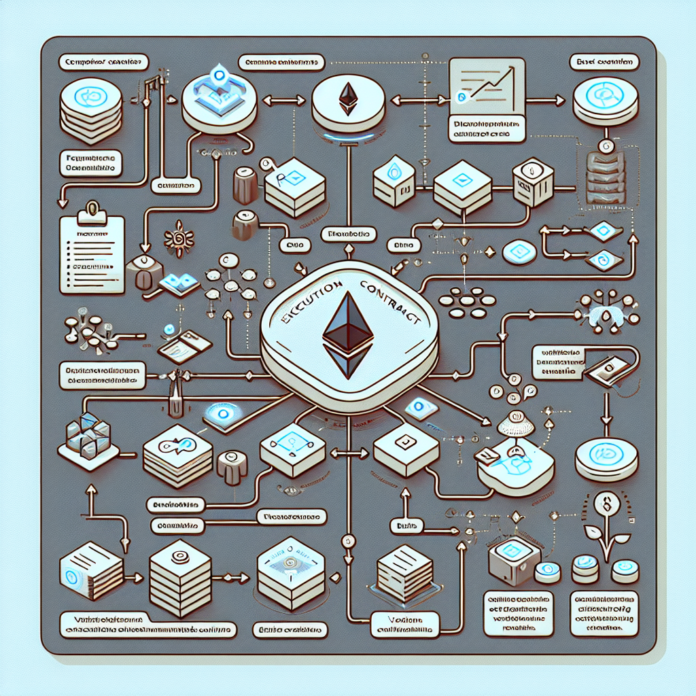The Ethereum blockchain has carved a unique place in the crypto world thanks to its revolutionary feature: smart contracts. Smart contracts are self-executing contracts with the terms of the agreement between buyer and seller directly written into lines of code. These contracts run on the blockchain, which means they are stored on a public database and cannot be changed. They have become the backbone of Ethereum’s robust ecosystem, enabling a new wave of decentralized applications (dApps).
What Are Smart Contracts?
Smart contracts were proposed by computer scientist Nick Szabo in 1994, long before the creation of Ethereum. However, it wasn’t until Ethereum’s launch in 2015 that smart contracts could truly be realized. Developers can create smart contracts on Ethereum using the platform’s native programming language, Solidity. Fundamentally, these contracts are algorithms that run as programmed without downtime, censorship, fraud, or third-party interference.
How Do Smart Contracts Work?
A smart contract’s rules are predefined by developers, and when the conditions of the contract are met, it automatically executes the agreement. For instance, if a user wants to transfer ERC-20 tokens, which are a standard for creating tokens on Ethereum, the smart contract automatically verifies and processes the transaction, without the need for an intermediary like a bank.
Platforms like Remix, a browser-based IDE, allow developers to write, deploy, and administer smart contracts on the Ethereum network. This accessibility has fostered a rich ecosystem of developers and innovators building on Ethereum.
The Use Cases of Smart Contracts
Ethereum’s smart contracts are versatile, serving a myriad of functions in the blockchain space. They are essential in dApps for various purposes, including decentralized finance (DeFi), games, and more. Smart contracts are at the heart of DeFi platforms MakerDAO and Compound, which allow users to lend, borrow, or earn interest on their cryptocurrency without relying on traditional financial institutions.
Aside from DeFi, Non-Fungible Tokens (NFTs), which verify the uniqueness and ownership of digital assets on the blockchain, operate on smart contracts. Platforms like OpenSea have flourished by facilitating the trade of NFTs through smart contract transactions.
Challenges and Limitations
While smart contracts are powerful, they are not without challenges. The code is immutable, so any flaws or bugs at the time of creation cannot be changed, which can lead to security vulnerabilities. Moreover, while the Ethereum network is robust, it has faced congestion and high transaction fees due to the increased demand for smart contracts.
The Future of Smart Contracts on Ethereum
The future of smart contracts on Ethereum is bright, with ongoing upgrades to the network, such as Ethereum 2.0, aimed at enhancing scalability and reducing costs. Ethereum 2.0 seeks to transition the network from proof-of-work (PoW) to proof-of-stake (PoS), which is expected to greatly improve the efficiency of executing smart contracts.
Conclusion
Ethereum’s smart contracts have unlocked a world of possibilities within the blockchain ecosystem, allowing for trustless and decentralized transactions and applications. As Ethereum continues to evolve with upgrades like Ethereum 2.0, the potential of these self-executing contracts is bound to expand even further. The future promises more innovative dApps, greater security, and a continued growth of the vibrant ecosystem built around smart contracts.




 AGF-B.CO
AGF-B.CO